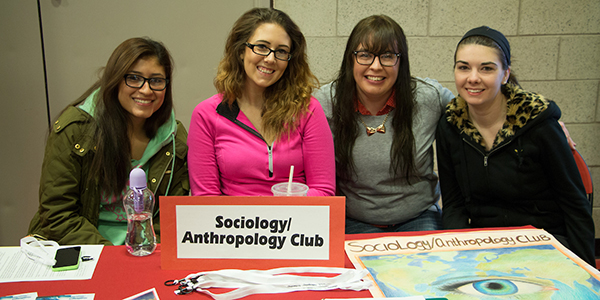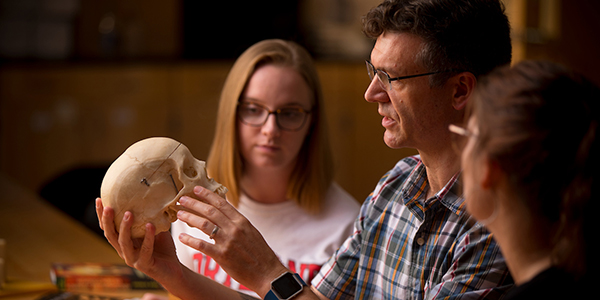Three new concentrations in SUNY Cortland’s anthropology major allow students to take a deeper look at human societies, cultures and their development.
At Cortland, anthropology students discover dedicated faculty mentors, research and fieldwork opportunities, and quality facilities, including the Rozanne M. Brooks Museum on campus.
In addition to required and elective courses in the anthropology major, students choosing a concentration will complete core courses and an internship when applicable. Course requirements for concentrations are included in the drop-down menus below.
Action Anthropology
Action Anthropology Core Courses
Students will complete four core courses.
- ANT 230: Prejudice and Discrimination
Additional selected courses may include:
- ANT 315: Development Anthropology
- ANT 318: Medical Anthropology
- ANT 372: Cross-Cultural Study of Global Violence
- ANT 378: Cross-Cultural Study of Sex Crimes
Back To Top
Forensic Anthropology
Forensic Anthropology Core Courses
Students will complete four core courses.
- ANT 206: Introduction to Forensic Anthropology
- ANT 411: Human Osteology
- ANT 412: Advanced Forensic Anthropology
- Students will also complete a fieldwork course.
Back To Top
Museum Studies
Museum Studies Core Courses
Students will complete four core courses.
- ANT 260: Introduction to Museum Studies
- ANT 352: US Ethnic Identity and Conflict
- ANT 406: Contact and Culture Change
- Students will also complete an internship and a cognate minor.


